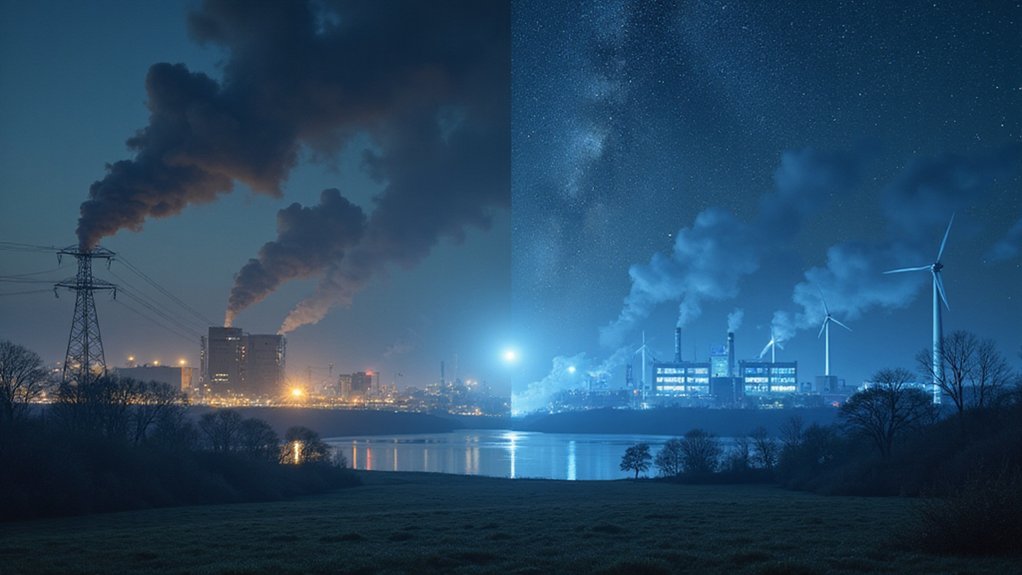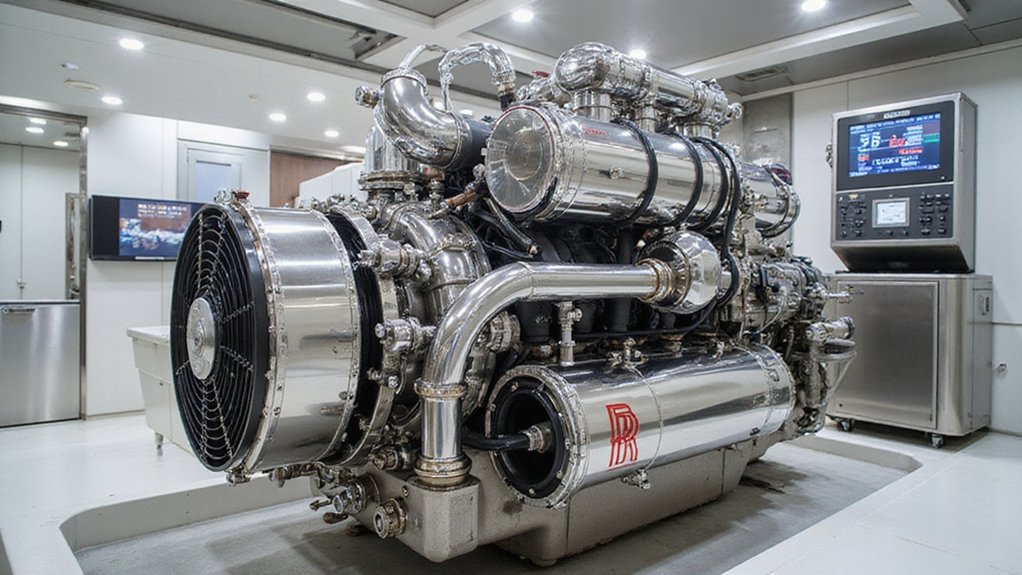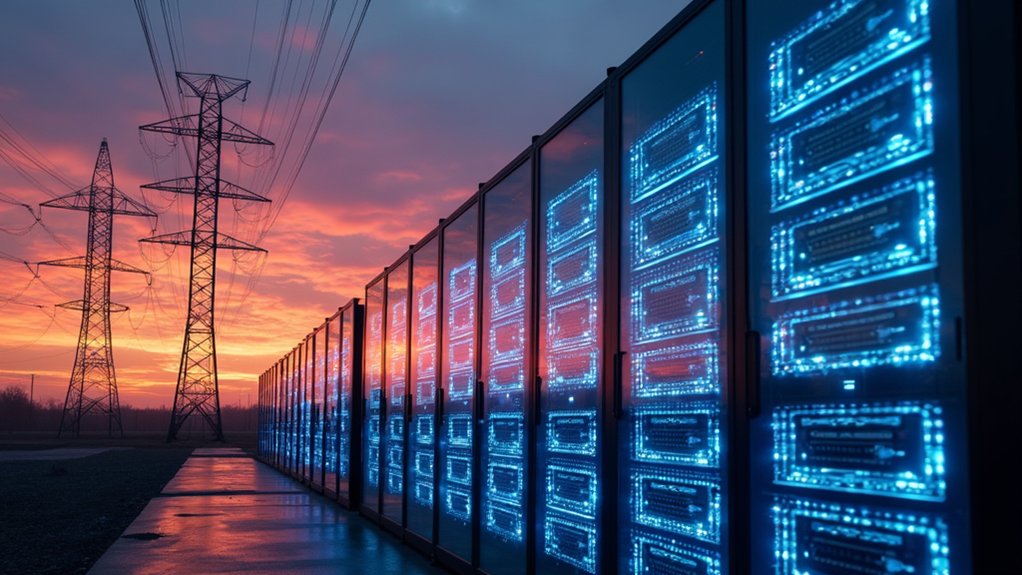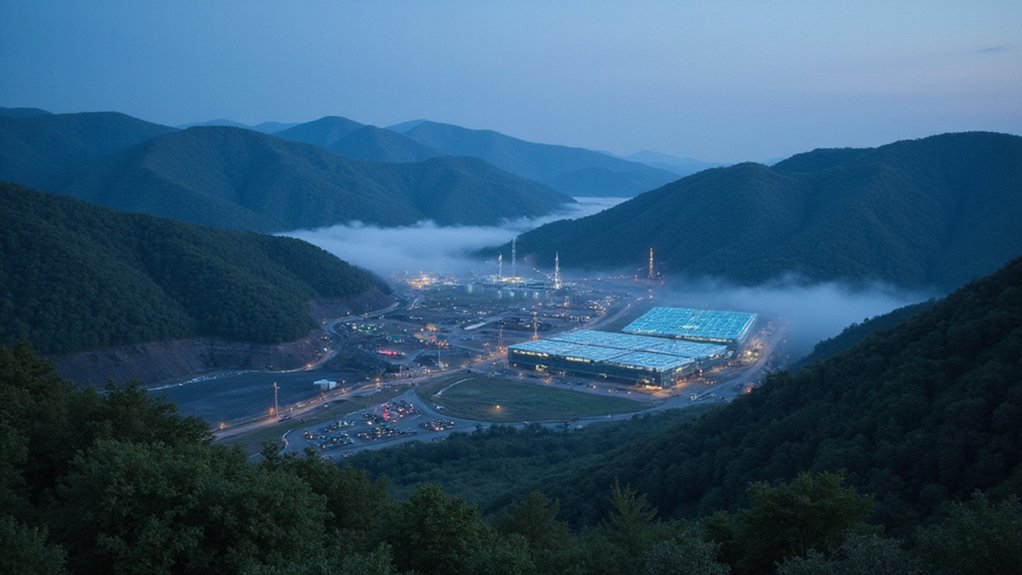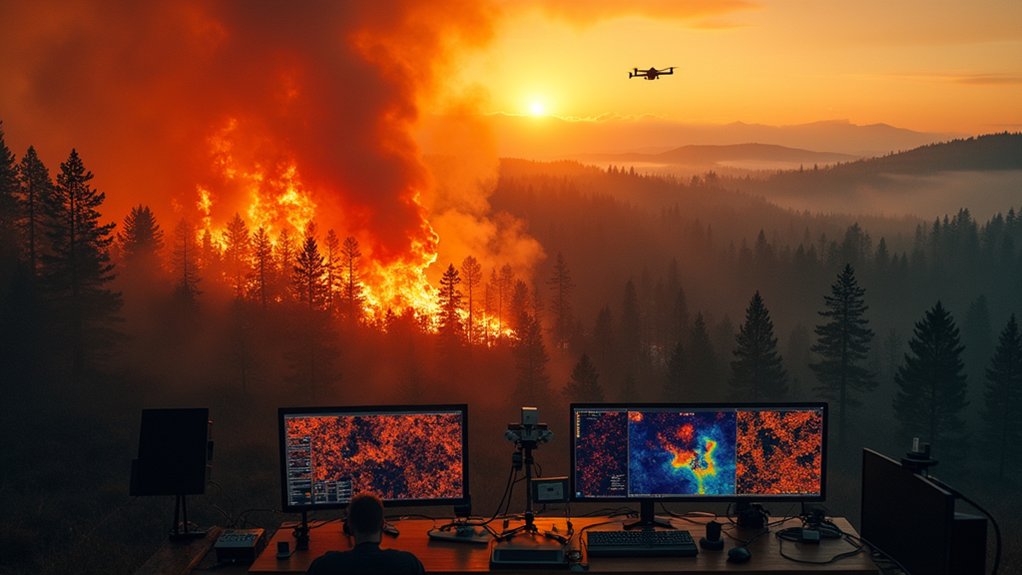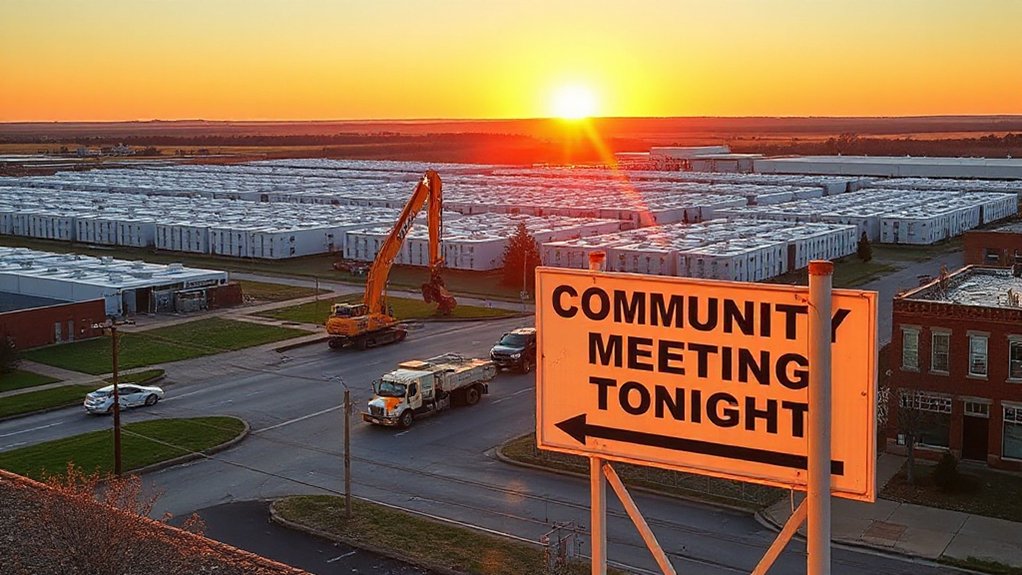AI presents a striking paradox for our environment. The technology consumes massive amounts of energy, contributing to climate change through data centers powered by fossil fuels. Yet, AI simultaneously offers powerful solutions by optimizing energy grids, improving climate models, and managing renewable resources. Companies are responding with greener data centers and efficient algorithms. This technological double-edge creates both environmental challenges and opportunities for restoration. Further exploration reveals how this balance might tip toward sustainability.
While artificial intelligence (AI) promises to transform our world, it presents a growing paradox for society and the environment. The same technology that’s causing significant environmental harm could also be our best tool for climate solutions.
AI systems, especially large generative models, consume massive amounts of electricity in data centers around the globe. Experts predict this energy use will more than double by 2030, with most power still coming from fossil fuels.
Training a single large AI model can use as much electricity as a small country. These data centers need constant cooling, which adds to their carbon footprint. They also use large amounts of water and land resources. The physical hardware itself creates additional emissions during manufacturing and eventually becomes e-waste.
Yet AI also offers powerful tools to fight climate change. It can create detailed climate models that help scientists understand future scenarios. AI optimizes energy grids, reducing waste and improving efficiency. It helps manage renewable energy sources like solar and wind power. In agriculture, AI systems lower emissions by improving farming methods. It even helps communities prepare for natural disasters.
Companies are starting to address this contradiction. Some are moving their data centers to locations with renewable energy. Others are designing more energy-efficient algorithms and hardware. New cooling technologies are reducing both electricity and water use.
Governments are considering regulations that would require AI companies to report and reduce their emissions. Industry standards could help create accountability. Mining activities for materials used in AI hardware often lead to habitat destruction and environmental degradation. Both public and private sectors need to work together to guarantee AI development aligns with climate goals.
The rapid growth of data centers is outpacing improvements in efficiency. Each modern facility can house tens of thousands of servers. As AI becomes more common in everyday life, finding sustainable solutions becomes more urgent.
The technology that’s currently adding to our carbon emissions could, if properly managed, help restore our environment and fight climate change. The fabrication process of GPUs used in AI systems requires significantly more power and involves harmful mining practices compared to simpler computing components. AI’s energy consumption is projected to rival the electricity usage of entire nations like Argentina and Sweden by 2027.
